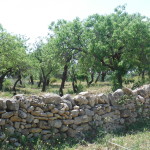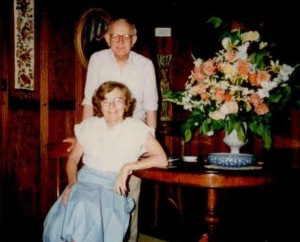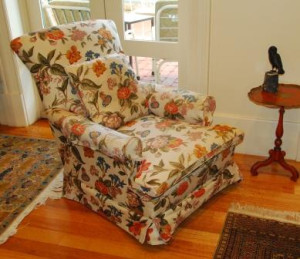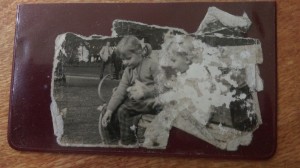 When my father-in-law died, after many years of sickness and many months in hospital, his wallet was in the drawer of the bedside cabinet. And in this wallet was a photo of his two daughters. Aged around 5 and 3, their hair in ribbons and pigtails, Anita and Ina are sitting side by side on a bench in a Sydney park, their feet unable to reach the ground. Continue reading A Photo in a Wallet
When my father-in-law died, after many years of sickness and many months in hospital, his wallet was in the drawer of the bedside cabinet. And in this wallet was a photo of his two daughters. Aged around 5 and 3, their hair in ribbons and pigtails, Anita and Ina are sitting side by side on a bench in a Sydney park, their feet unable to reach the ground. Continue reading A Photo in a Wallet
Bondi: Yooka Symonds
‘There, but for the grace of God, go I’
Renowned Bondi figure, Bill ‘Yooka’ Symonds, died in September 2015 at the age of 93. His twin brother, Curly, died 6 days later. In 2007, we interviewed Yooka in connection with research we were doing at the Norman Andrews House, a Bondi drop in centre for the homeless. We asked Yooka to tell us about his voluntary work (for which he received an OAM).
Continue reading Bondi: Yooka Symonds
Prenatal Screening – who we are
The Ethics of Prenatal Screening
Prenatal testing has become a standard part of antenatal care in Australia. At about 12 weeks pregnant women are offered a relatively simple, elective scan which, combined with a blood test, can screen for common chromosomal disorders such as Down Syndrome. Although this screening test is elective few women choose not to have the nuchal translucency ultrasound. Even fewer decide to continue a pregnancy after chromosomal abnormalities have been detected. Recent Victorian studies suggest that the abortion rate for Down Syndrome is something like 95%.
I came across this information whilst doing research for a course I was teaching on human rights, gender and justice. Continue reading Prenatal Screening – who we are
The time and space of childhood
On my recent visit to Sicily and Crete I was reminded repeatedly of the place, in South Australia, where I grew up. Looking at a hillside of olive trees in Sicily, I would find myself in a primary school geography lesson, lost in pictures of ‘the Mediterranean’. I couldn’t now say if my fascination with ‘the Mediterranean’ had been a fascination with places in the Mediterranean or with South Australia’s classification as ‘Mediterranean climate’. But, while in Sicily and Crete, I had an overwhelming feeling that these seemingly faraway places were somehow inextricably connected with the place of my childhood. Continue reading The time and space of childhood
Belongings, Adelaide, June 2015
My father has recently died; and my mother died 10 years ago. So, my siblings and I are now engaged in the process of ‘going through’, ‘sorting out’ our parents’ belongings. I have trouble finding the right way to describe this activity, emotionally complex as it is, for we are now having to make decisions about things that have had significance in our parents’ and our past shared lives. It is a difficult and painful process, but one that brings with it moments too of lightness, surprise and joy. One way or another, this experience feels meaningful. Continue reading Belongings, Adelaide, June 2015
The hottest July day on record
The Mirror warned that Britain yesterday was to be hotter than Barbados and the Sahara. The Telegraph offered readers a range of alarms and advice:
• Stop staff travelling in rush hour, health officials urge
• Britain braced for hottest day in a decade
• Heatwave could buckle train tracks and melt roads, travellers warned
• What men should wear to work during a heatwave
• UK heatwave in pictures: Scorching weather sears Britain Continue reading The hottest July day on record
Time, Crete and Sicily, April – May 2015
I have just returned from a month-long holiday in Sicily and Crete. What I felt there, over and over, was the awe-inspiring presence of time. It was in the landscape of 400 year-old dry-stone walling; it was in a Greek theatre in a field of poppies; it was in streets with layers of civilizations visible in the walls of buildings. Continue reading Time, Crete and Sicily, April – May 2015
Letter to a friend
I know you are suffering. You tell me that you feel broken, exhausted. Your horizons are diminished. You feel as though you have lost a better self and have no way to regain it. In spite of the specialists, the doctors, herbalists, clinicians, the diets and disciplinary regimes, a cure eludes you. You are beginning to despair. I can hear the anguish in your voice, the distress on your face, when we speak about your condition. You are suffering.
At times you see your illness as the cause of your suffering. It is the insurmountable obstacle that prevents you from realising your true, happier, self. At others, you blame yourself for not being able to accept your condition and forge a life within it. You see your suffering as a sign of failure: your great and perpetual failure to be happy. As if happiness was an achievement. As if us non-sufferers were somehow better at living than you. Continue reading Letter to a friend
This Child: The Unknown Soldier
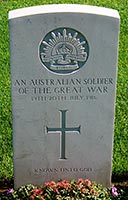
Can I know the unknown soldier?
I started writing this on Anzac Day, 2014, and the Sydney Morning Herald was carrying a story entitled ‘On a foreign field a girl remembers the fallen’:
An Australian schoolgirl unexpectedly wells up with tears over a nameless Fromelles gravestone. Zoe Bell, 17, of St Leonard’s College in Melbourne, isn’t usually like this, her teacher tells me. This isn’t hysteria or histrionics. Just history.
Here in northern France, the numbers and politics and clichés of a century-old war fall away, and the reality of it rises from the ground like the thick local fog. Its meaning chills you so sharply that it can force water from the most cynical, surprised eyes.
All those dead. On this soil, it doesn’t take a supernatural imagination to sense their presence.
There are a multitude of Zoes on the Western Front right now. Swarms of coaches buzz from one cemetery to the next.
(Joe Barton, SMH 25/4/2014, pg 7)
Hello!
We have set up this website as a forum for people who share our interest in the social qualities of both life and lives. Our initial hope is that you find it interesting and useful, but our main hope is that you will be moved to join in the dialogue.
Thanks for coming,
Ann, Andrew, Demelza
